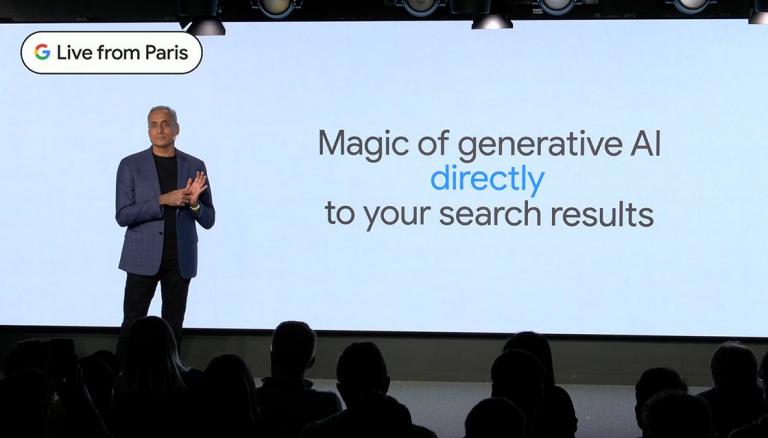As part of a live-streamed event on YouTube, Google presented its most recent artificial intelligence (AI) work. The “Live from Paris” presentation highlighted AI with a brief mention of Google “Bard” chatbot, which it debuted earlier this week. The announcement of greater integration of AI elements into the Bing search and Edge browser came from Microsoft’s surprise event with OpenAI, which was staged the day before Google’s presentation.
Bard is being made available on a scaled-down version of LaMDA. Before opening it up to more users, it appears that Google is only keeping this available to “trusted testers” now. The discussion technology LaMDA (or Language Model for Dialogue Applications) that the business created is the foundation of Bard. It also demonstrated how Search will now include solutions utilizing generative AI or in the form of essays, much like how ChatGPT functions.
Google talked about its “Blob Opera” at the event. In the “Blob Opera” AI experiment, a neural network or artificial intelligence generates what opera may sound like. David Li worked with Google Arts & Culture on the project, an experiment in machine learning. Additionally, Google is enhancing Indoor Live views. It is adding multiple cities and 1000 new locations to the Indoor Live View network. Additionally, it will be released more extensively on iOS and Android.
ChatGPT or Google “Bard”?
More augmented reality capabilities will be added to Google Maps. More AI-driven augmented reality features will be added to Google Maps. Soon, you can point the camera on your phone at a coffee shop, restaurant, etc., and see Google evaluations about the location shown on the screen. Of course, India will not be receiving this.

The scheduling of the event comes at a crucial time for the tech giant as ChatGPT and other services that can better construct solutions to user questions challenge its monopoly on search engine dominance. The corporation is alarmed by ChatGPT’s appearance because it issued an internal “code red,” fearing a significant interruption of its search operation.
It’s time for AI and Google Maps. Google is currently discussing the Maps Immersive view, which also uses AI. Remember that only some places have received this function; it was previously shown off. Today, Google will launch it in cities such as London, Los Angeles, and others. Back in September, Immersive View made its debut.
Generative AI will assist in improving search results. Pichai stated in the blog post, Search is changing. Soon, you will be able to ask complicated questions and receive in-depth, essay-style responses in addition to the search results. According to Google, “generative AI” is being used to generate these responses.
It has stated that it will work to maintain a balance so that these reactions do not affect website traffic, which is a legitimate and significant worry.
Bard or Big Fumble?
Bard is currently being demonstrated to us. Google is currently demonstrating Bard, built on LaMDA, in great detail. However, the demo was brief. Google has also restricted Bard’s testing to only a small group of “trusted testers.” Thus, testing by the general public has yet to begin. Before ‘Bard’ is made available for public testing, Google wants to ensure it causes the least amount of trouble possible.
Google Brad gained popularity on Twitter as people started tweeting more about it. Matt Turck tweeted, “Tonight we say goodbye to the Google Marketing Manager who mistyped “Brad” in the final press release for their new AI chatbot.”
Tonight we say goodbye to the Google Marketing Manager who mistyped “Brad” in the final version of the press release for their new AI chatbot
— Matt Turck (@mattturck) February 7, 2023
Another user tweeted, “Google should’ve named their AI bot Brad instead of Bard. Big fumble.”
Google should’ve named their AI bot Brad instead of Bard. Big fumble
— litquidity (@litcapital) February 7, 2023











